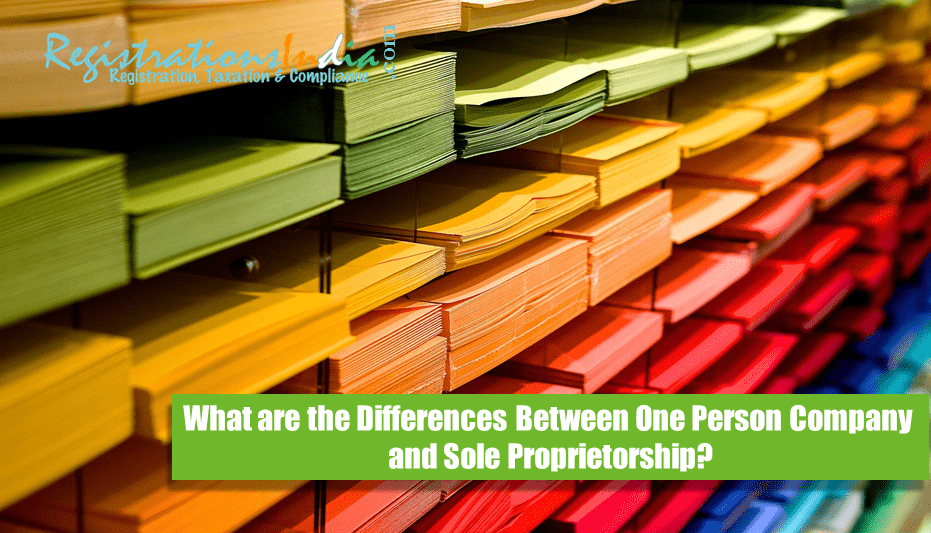What are the Differences between One Person Company and Sole Proprietorship?
For easy understanding we have divided this article into different heads of features. Like governing law, legality, compliance etc. Know an Effective Differences Between One Person Company and Sole Proprietorship.
1. Legality
One person company is a separate legal entity before the law. This means the liability of the director is limited. Sole proprietorship is not a separate legal entity.
2. Name
One person company needs to affix OPC with its name. Any such suffix is not required in the case of a Sole Proprietorship
3. Governing Law
One Person Company is governed by the Companies Act, 2013 however, Sole Proprietorship is not governed by any such law.
4. Registration
One Person Company is required to be registered with Companies Act, 2013 but Sole Proprietorship does not require any registration as such.
5. Normally Recommended for
One Person Company is normally recommended for Single Person Businesses. Sole Proprietorship is for single person small traders.
6. Fines & Penalties
Since One Person Company is governed by the Companies Act, 2013 the fines & penalties are as per the act and are relatively high compared to that in case of Sole Proprietorship.
7. Minimum Number of Directors
As mentioned above the maximum number of Directors in case of One Person Company is ONE. The director however will need to appoint a nominee. Since Sole Proprietorship is not governed by any Law this clause is not applicable.
8. Annual Filing
Annual Filings have to be made to Registrar of Companies in case of One Person Company apart from Income Tax return filing. In Sole Proprietorship one doesn’t have to file annual returns to Registrar of Companies.
9. Audit
An audit is Compulsory in the case of One Person Company. In case of Sole Proprietorship it is not compulsory but may be required.
10. Registration Cost
In case of One Person Company since the entity is registered with Registrar of Companies the incorporation cost is higher. In case of Sole Proprietorship the cost of registration is low.
11. Liability
Since One Person Company is a separate legal entity from its director as discussed in point 1 above, the liability of the director is limited. In case of Sole Proprietorship since the entity is not incorporated under any law the entity is not a separate legal entity and hence the liability of the proprietor is unlimited.
Conversion
One Person Company can be converted in to a Private Limited Company or a Public Limited Company. A sole proprietorship does not have this option available.
Summary
You can choose the type of entity that suits you the best amongst One Person Company and Sole Proprietorship. You need to consider the nature of your business with the number of compliance and flexibility the entity structure needs to offer.
There are other entities structures also which the Indian Laws allow. For a complete list you can check here https://registrationsindia.com/learning-hub/differences-between-pvt-ltd-vs-llp-vs-opc-vs-general-partnership-vs-sole-proprietorship/
I hope you have liked this article on ' What are the differences between One Person Company and Sole Proprietorship?', if yes please comment below. For more information you can visit www.registrationsindia.com
Let us know your Registration, Taxation & Compliance Requirements


